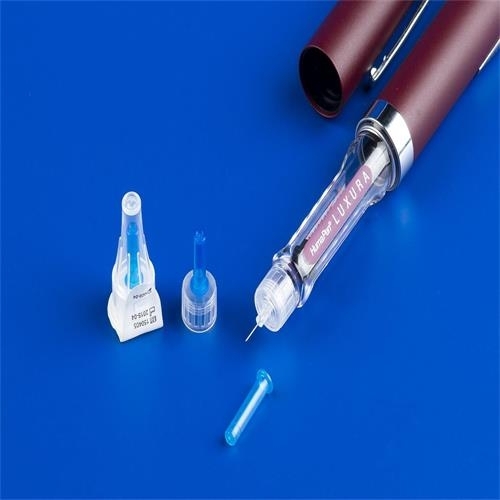Let’s talk insulin.
Mention the “I word” to a reduced carb dieter, or possibly a clean eater, and you can virtually discover their whereabouts turn white because the blood drains from other face in abject horror.
To them, insulin could be the big theif inside the nutrition world.
They refer to insulin as “the storage hormone” and think that any amount of insulin in the body will immediately lead you to lay out new fat cells, put on pounds, and lose any a higher level leanness and definition.
Fortunately, that’s not quite true.
Actually, while simplifying things with regards to nutrition and training is frequently beneficial, this can be a gross over-simplification with the role of insulin inside you, as well as the simple truth is entirely different.
Far from is the dietary devil, insulin is basically absolutely nothing to be afraid of whatsoever.
What Insulin Does
Part one from the insulin worrier’s claim (that insulin is often a storage hormone) holds true Body of insulin’s main roles is always to shuttle carbohydrate that you simply eat round the body, and deposit it where it’s needed.
That does not mean that every the carbs you take in become fat though.
You store glycogen (carbohydrate) in your liver, the muscles cells as well as your fat cells, and it’ll only get shoved into those pesky adipose sites (fat tissue) if the muscles and liver are full.
Additionally, unless you are in a calorie surplus, you just cannot store unwanted fat.
See it using this method –
Insulin is similar to the workers in a warehouse.
Calories are the boxes and crates.
You could fill that warehouse fit to burst with workers (insulin) but when there isn’t any boxes (calories) to stack, those shelves won’t get filled.
So if you feel burning 3,000 calories every day, and eating 2,500 calories (or even 2,999) your body can’t store fat. No matter if all of the calories are derived from carbs or sugar, you do not store them, as the demands them for fuel.
Granted, this wouldn’t be the world’s healthiest diet, speculate far as science can be involved, it comes to calories in versus calories out, NOT insulin.
It’s not only Carbs
People fret over carbs keeping the biggest influence on insulin levels, and exactly how carbohydrate (particularly of the simple/ high-sugar/ high-GI variety) spikes insulin levels, but a lot of other foods raise insulin too.
Whey protein, as an example, is extremely insulogenic, and will create a spike, particularly when consumed post workout.

Dairy foods too will have a relatively large effect because of the natural sugars they contain, and also fats can raise levels of insulin.
Additionally, the insulin effect is drastically lowered by consuming a combined meal – i.e. one that contains carbs plus protein and/ or fat.
This slows the digestion and also the absorption with the carbs, bringing about an extremely lower insulin response. Add fibre in the mix too, and also the raise in insulin is minimal, so even if we had been worried about it before, the perfect solution is not hard – eat balanced, nutrient-dense meals, and you also don’t need to worry.
Insulin Builds Muscle
Finding comfort the thought of insulin being a storage hormone, as well as the notion who’s delivers “stuff” to cells:
Fancy taking a guess at what else it delivers, beside carbohydrate?
It delivers nutrients for your muscle tissues.
Therefore, should you be forever always keeping levels of insulin low for fear of extra weight, it’s highly unlikely you’ll get buff optimally. It’s because of this that I’d never put clients seeking to bulk up to make lean gains with a low-carb diet.
No Insulin Could Equal Fat cell function
Contrary to all of the low-carb diet practitioners yet again, you are able to store fat when insulin levels are low.
Dietary fat when consumed inside a caloric surplus is actually converted to excess fat tissue a lot more readily than carbohydrates are, showing that once again, excess weight or weight loss comes down to calories in versus calories out, not insulin levels.
Why low-Carb (and Low-Insulin) Diets “Work”
Many folk will point for the scientific and anecdotal proof low-carb diets working as reasoning for keeping levels of insulin low.
I cannot argue – a low-carb diet, where insulin release is kept to a minimum are able to work, but this has almost no regarding the hormone itself.
When you cut carbs, you generally cut calories, putting you in to a deficit.
Additionally, the average person will eat more protein plus more vegetables when going low-carb, so that they feel far fuller and eat fewer. Plus, protein and fibre both have a higher thermic effect, meaning they use up more calories through the digestion process.
Bottom Line: Insulin – Not Bad All things considered
There’s no need to concern yourself with insulin if you –
Train hard and often
Follow a balanced macronutrient split (i.e. ample protein and fat, and carbs to suit activity levels and private preference.)
Are relatively lean.
Eat mostly nutrient-dense foods.
Don’t have any difficulties with diabetes.
You’ll probably still store fat with low insulin levels, and you can burn fat and create muscle when insulin is found.
Taking a look at insulin in isolation as either “good” or “bad” is indeed a prime example of missing the forest to the tress, so take it easy, and let insulin do its thing when you target the real picture.
More information about buy semaglutide online UK have a look at this popular webpage.
